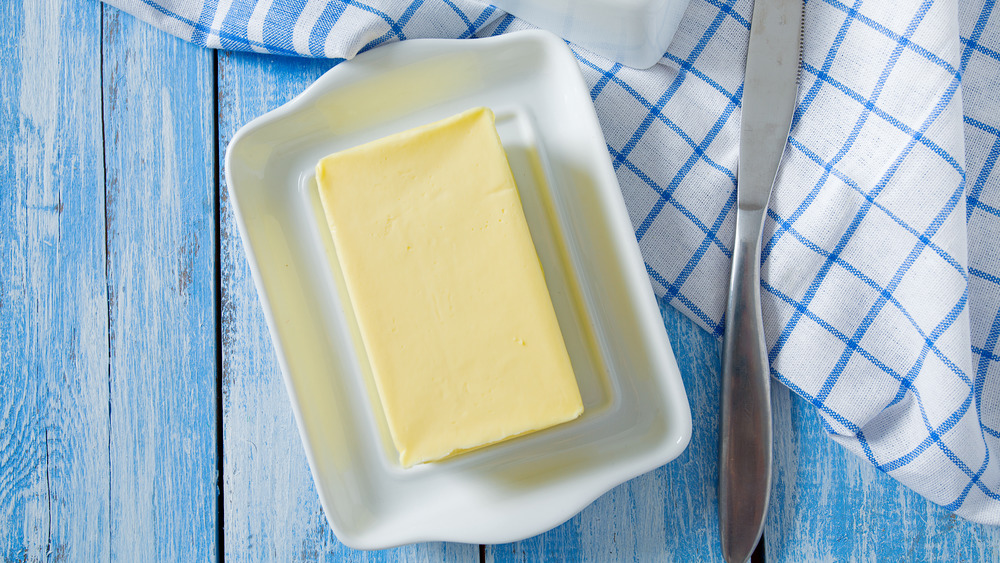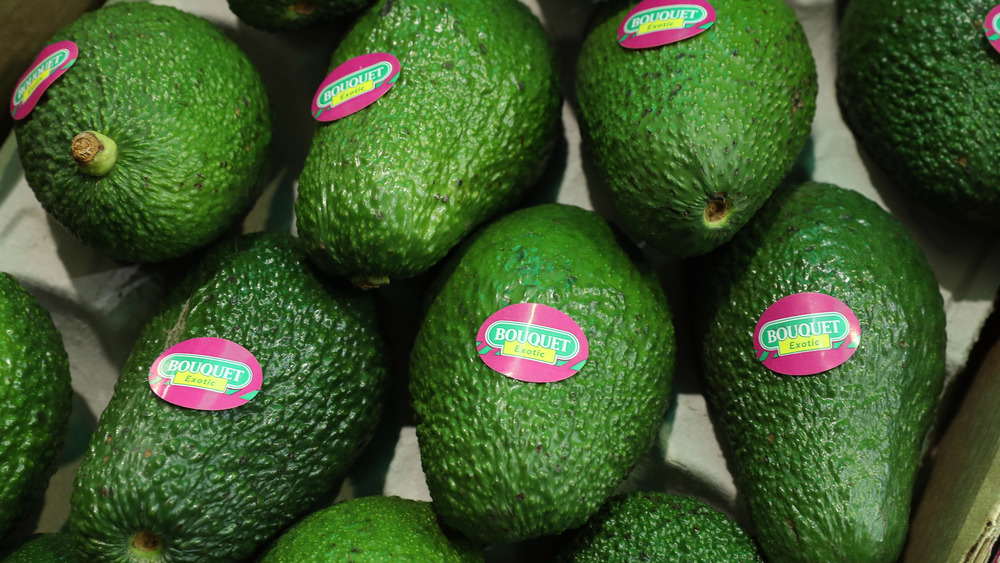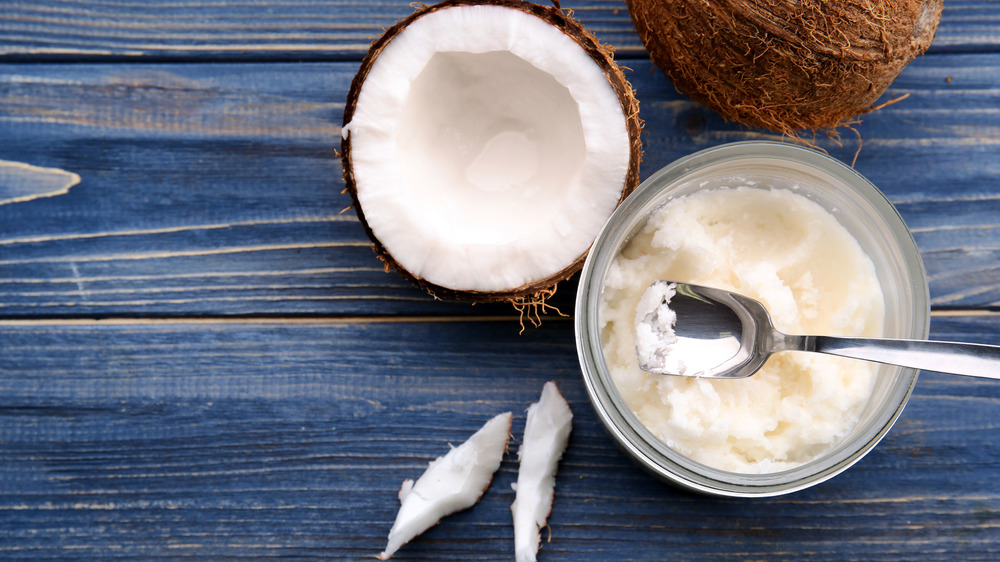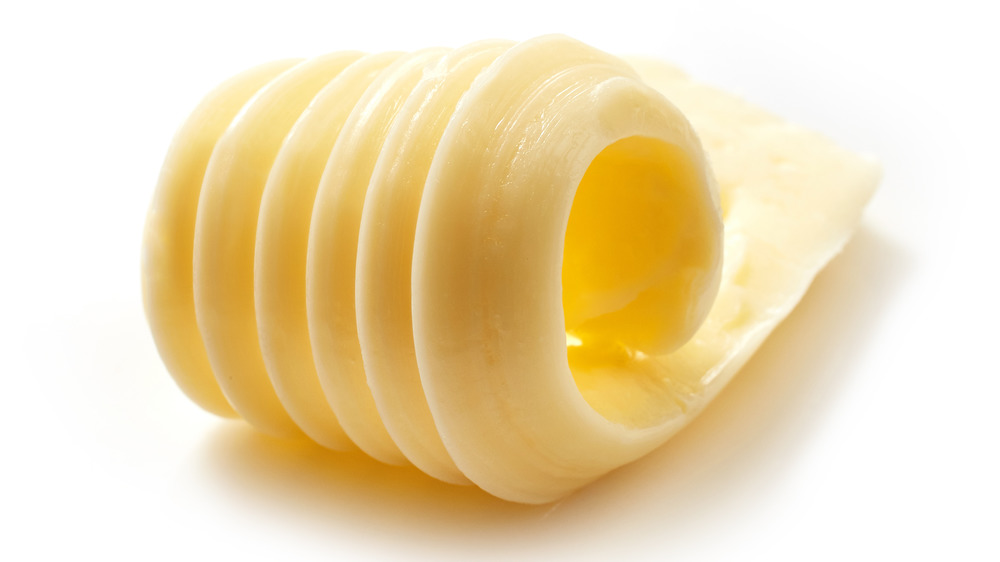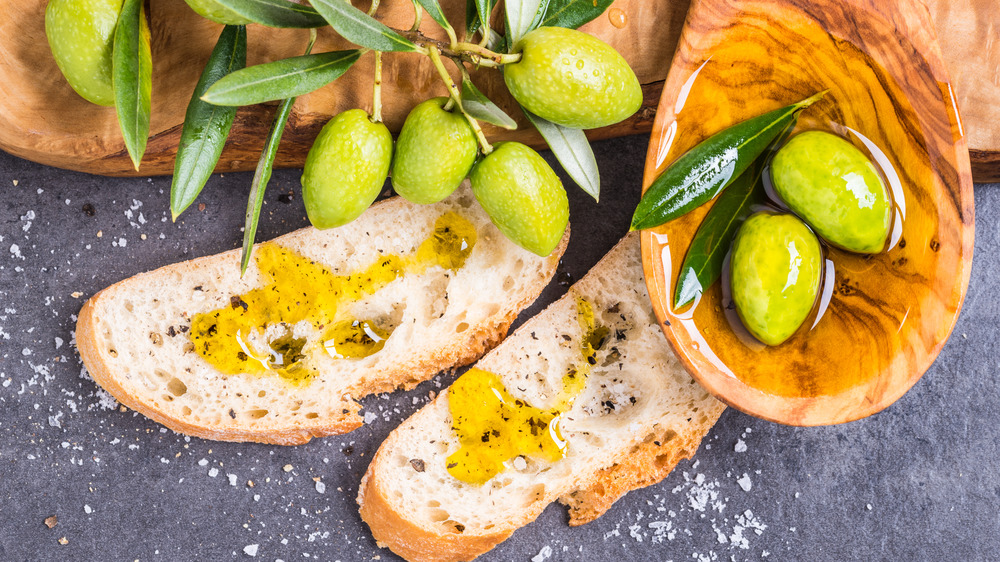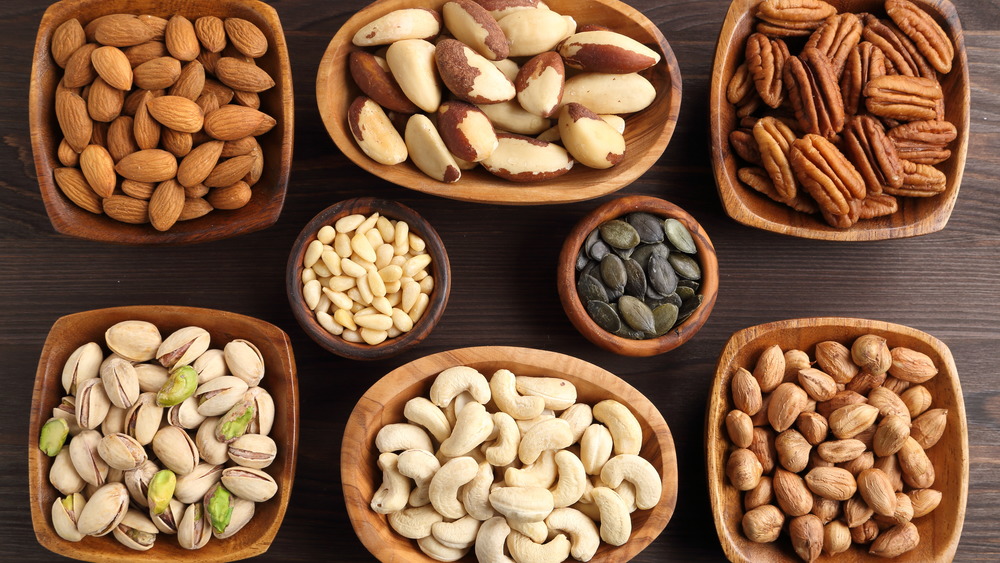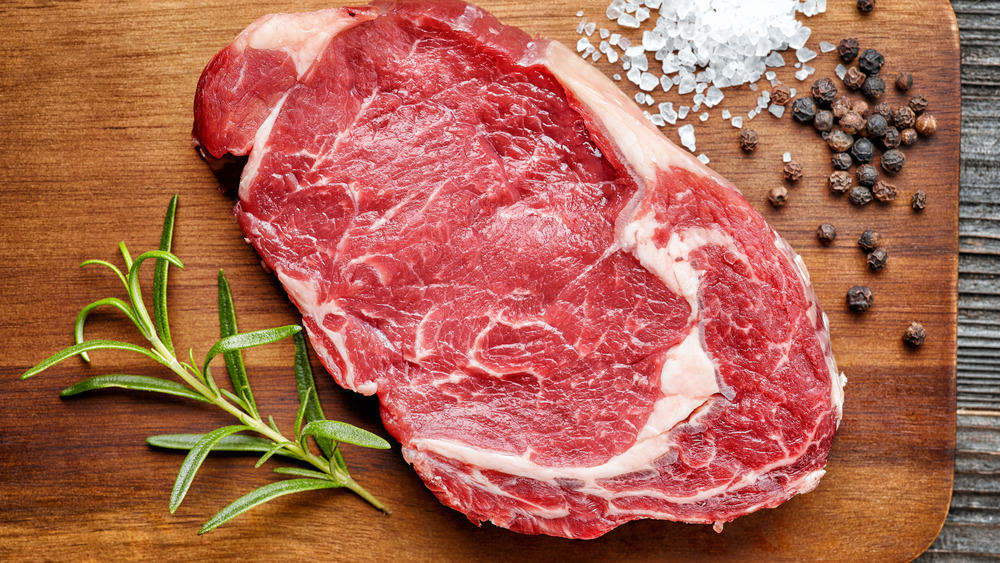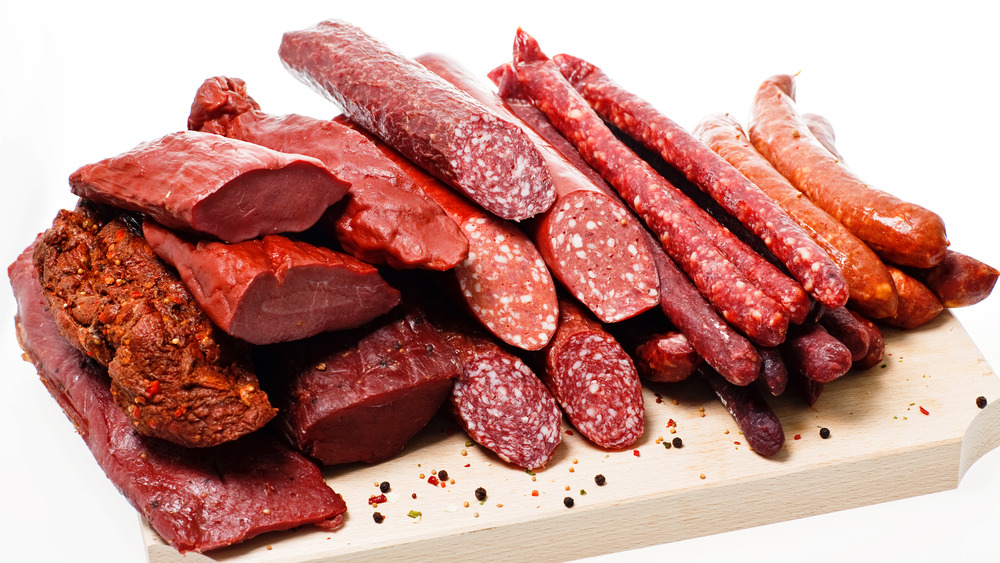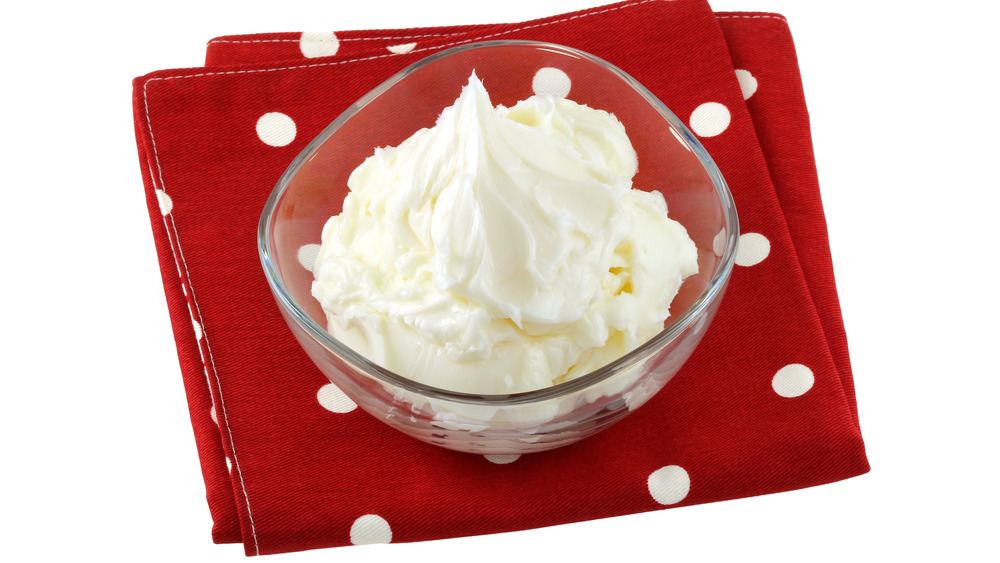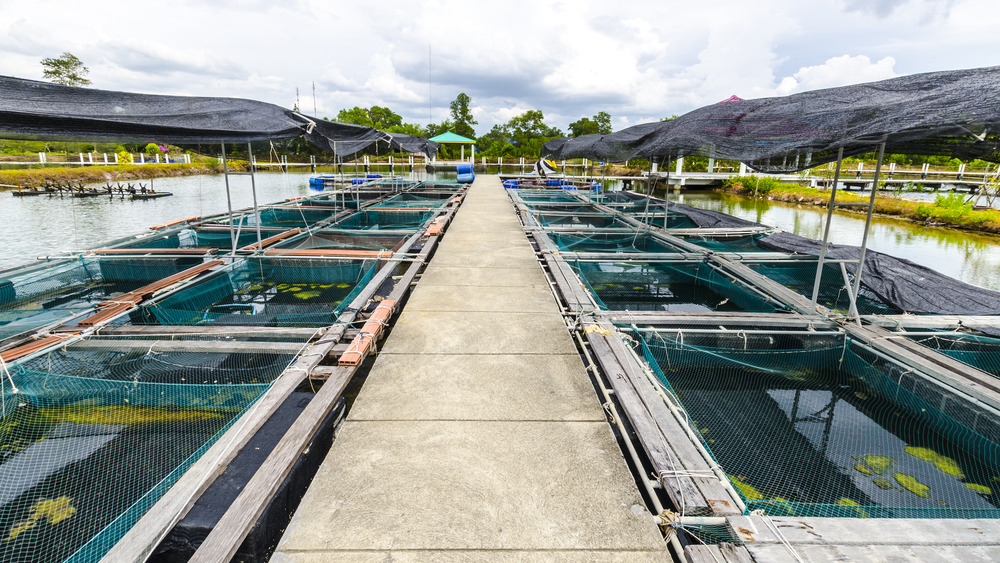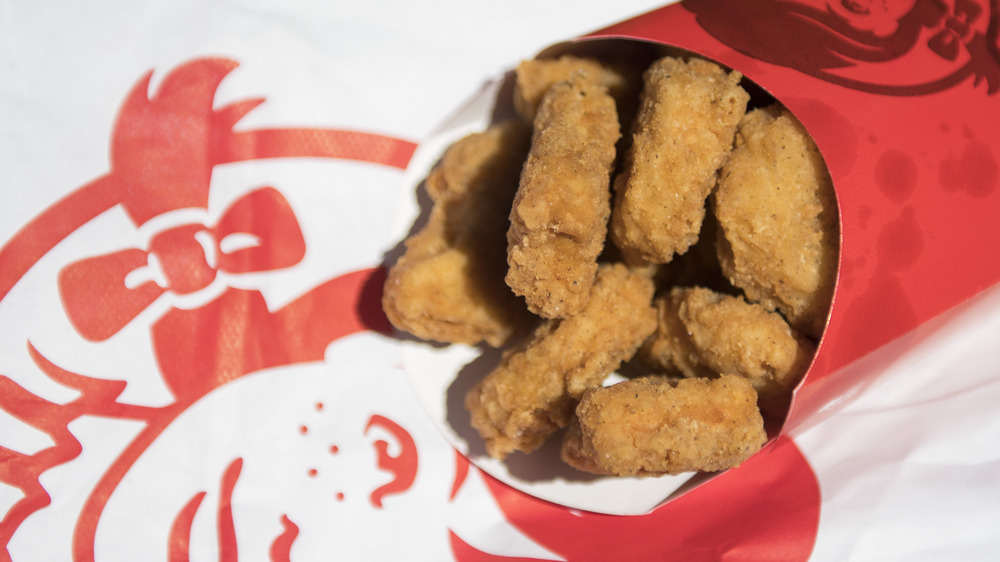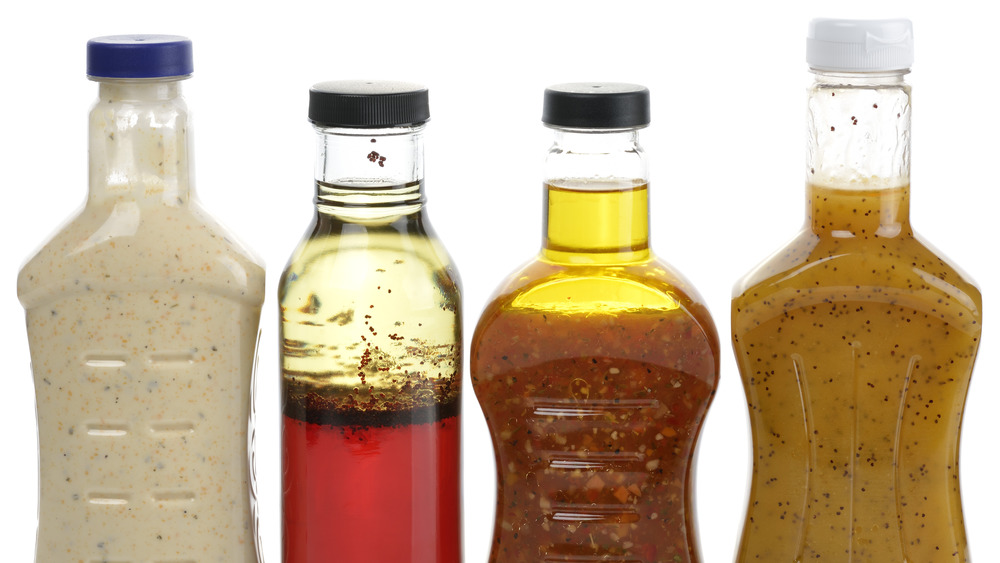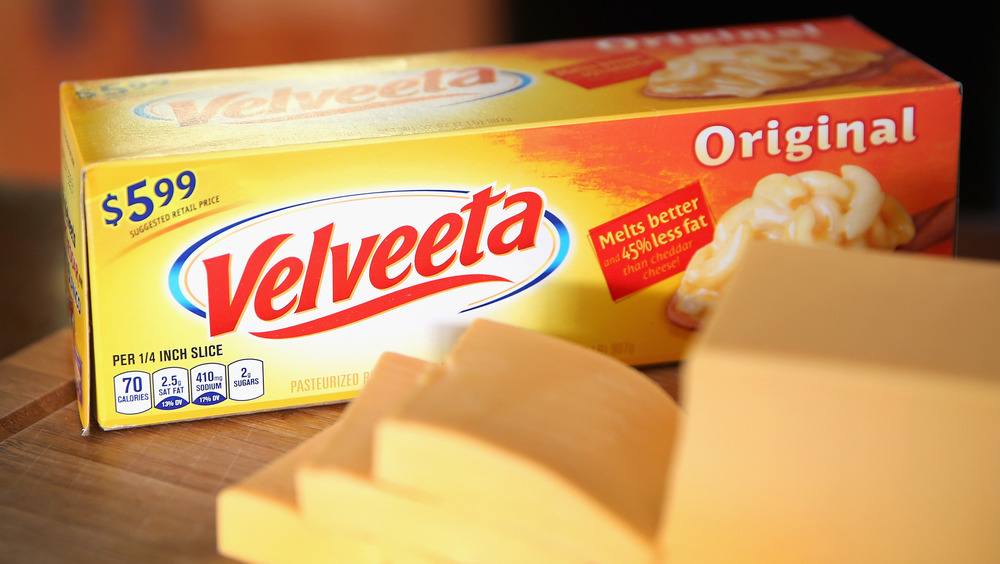7 Fatty Foods You Should Be Eating And 7 You Shouldn't
Time magazine made waves in 2014 when they declared butter to be "back," reporting on a study indicating the consumption of saturated fats did not, in fact, hold the same health concerns as previously believed. "But not so fast!" said the Harvard School of Public Health in 2016, reminding us of their findings that saturated fats, while not the worst fat we can eat, are certainly not as healthy as plant-based, monounsaturated fats. When it comes to the skinny on fat, some days, it seems hard to keep up!
What we do know for certain is that fat is necessary for a healthy, well-functioning body. Many essential vitamins, like A, E, and K are fat-soluble, meaning consumption of fats is necessary to transport them through our bloodstream. As Christine Gerbstadt, MD and registered dietician tells SELF, "The body requires fat as a building block of nerve tissue in the brain." She adds, "We need some saturated fat in our diet. The body's production of steroid hormones, including sex hormones like estrogen and testosterone, requires saturated fat."
So how can you make the best possible choices when deciding which fats to consume? Read on to discover which fatty foods make the grade, and which you should ditch immediately.
Do eat: Avocado
Avocado is enjoying the fame it deserves, thanks to people waking up to the fact that it's not only delicious, but also incredibly healthy! Loaded with fiber, vitamins, and more potassium than a banana, this incredible fruit is brimming with a special kind of fat called oleic acid. Oleic acid is a monounsaturated fat known to combat inflammation in the body — but the wonders of avocado don't stop there. Consumption of avocado has been linked to healthier cholesterol levels, a reduced risk of cataracts, and even weight loss.
So here's a case where you definitely shouldn't let the fat content stop you! Whip up some guacamole, puree avocado into some chocolate pudding, or even use some avocado oil when preparing your favorite meals.
Do eat: Coconut and coconut oil
It's pretty challenging keeping up with the debate about whether or not saturated fats are bad for us. While it is indeed true that the fats found in coconut and coconut oil are mostly saturated, they're actually a very special kind of fat called medium chain triglycerides, or MCTs. These fats are metabolized differently in our bodies than other saturated fats, and provide a wealth of health benefits to the body including fighting bad bacteria, boosting weight loss, and improving cholesterol levels. MCTs have even proven to be therapeutic in severe brain maladies like epilepsy and Alzheimer's disease.
So go ahead, sprinkle some shredded, unsweetened coconut flakes on your oatmeal, or mix them into your yogurt. If cooking with coconut oil, make sure to look for the unrefined variety, which will be labeled organic, raw, virgin coconut oil, to reap the health benefits that coconut oil can offer.
Do eat: Grass-fed butter
Can butter actually be good for you? While this question is still a central part of the ongoing debate over the health status of saturated fats, there is quite a bit of science that shows that eating butter can indeed provide many health benefits, as long as you pick the right kind of butter to eat.
Unlike conventional butter, butter that has been made with the cream of grass fed cows is higher in heart-healthy, omega 3 fatty acids, as well as vitamin K2. Vitamin K2, found only in animal foods, is instrumental in decalcifying our arteries, and can also aid in fighting osteoporosis and heart disease. Butter also contains a unique fatty acid called butyrate, which is a potent anti-inflammatory.
Butter, of course, is also very high in calories, so unless you are embarking on a ketogenic diet, you still want to keep an eye on the amount you eat.
Do eat: Olives and olive oil
While debates are looming over the health benefits of various kinds of fats, one belief seems to hold universal — olive oil is good for you.
While all olive oil contains nutrients and fatty acids with proven attributes, it is extra-virgin olive oil that is touted as a true superfood. Extra-virgin olive oil is loaded with the monounsaturated fat known as oleic acid, which is an anti-inflammatory powerhouse. Olive oil is also chock full of cancer-fighting antioxidants, improves brain function, reduces the risk of diabetes, and is the only fat linked to a reduction in risk of stroke.
You only have one thing to worry about when buying extra-virgin olive oil — getting duped at the market. Unfortunately, the olive oil industry is rife with fraud, with many inferior oils being passed as true extra-virgin. So do your research on the brands that you can trust, and enjoy!
Do eat: Nuts
Great news for nut lovers! It turns out that nuts are not only fantastic for us, but they can also help you lose weight. It's true! Studies show that consumption of nuts, particularly almonds and pistachios, are linked to increased weight loss in test subjects. Is it because nuts are so high in fiber? Some studies show this may be the case, as the fiber in nuts helps to fill us up, while also reducing the fat and calories our body actually absorbs from those nuts.
So what else is so great about nuts? A small serving contains a whopping amount of essential nutrients like selenium, manganese, and vitamin E, to name a few. Nuts are loaded with antioxidants to keep our cells happy and healthy, and can also contribute to healthy cholesterol and blood sugar levels. So go ahead, get nutty!
Do eat: Fatty fish
With a few exceptions, most fish is good for you, but it is in fatty fish that we really get some major bang for our buck when it comes to nutrients and health benefits.
Most people are aware of the high amounts of beneficial omega-3 fatty acids found in fish, which can lower risk for heart attacks and strokes. Fatty fish like herring and salmon also contain the highest amounts of vitamin D we can get through our diet. Consumption of fish is linked to improved sleep quality, healthier eyes and brains as we age, reduced risk of heart disease, and has even been found to fight depression.
Of course, you do want to be mindful of the mercury content of the fish that you eat. Found in bigger concentrations in larger, predatory fish, mercury is a heavy metal that can cause toxicity when we consume too much. Luckily, fatty fish like salmon and sardines are low on the mercury scale, so you can enjoy them regularly.
Do eat: Grass-fed beef
Beef is another fatty food that's had its fair share of being demonized as the cause of heart disease and obesity. While many cuts of beef are indeed high in saturated fats, beef also possesses a host of nutrients and high-quality protein. Unfortunately, the quality of beef from concentrated animal feeding operations (CAFOs) can be questionable, with the cattle's forced diet of grain altering the natural nutrient content of the beef produced. Many people also question the use of hormones and antibiotics in these factory farm operations.
Grass-fed beef, however, is different. The resulting beef is lower in fat and calories, with a different nutrient breakdown than its conventional counterpart. Grass-fed beef contains nearly five times the amount of omega-3 fatty acids, and twice as much conjugated linoleic acid (CLA), a naturally occurring trans fat (not the bad kind!) which has been linked to the prevention of obesity, diabetes, heart disease, and some forms of cancer.
Don't eat: Processed meats
What exactly are processed meats? Think hot dogs, deli-style cold cuts, bacon, and sausage. Processed meats have been treated with nitrites and other chemicals to improve their flavor and reduce spoilage. The problem is, the nitrites, particularly when exposed to high heat, form harmful substances known as nitrosamines, which are directly linked to some forms of cancer. The process of smoking meats also causes another known carcinogen, polycyclic aromatic hydrocarbons (PAHs), to settle on the meat's surface. Processed meat consumption has been associated with a heightened chance of chronic diseases like heart disease, stomach cancer, and bowel cancer.
If you can't give up your favorite processed meats entirely, there is a compromise. Look for cold cuts and bacon that are labeled nitrite-free. Popular organic brands are often nitrite-free, so they are a great place to start.
Don't eat: Trans fats
For years, we were told that transitioning from evil animal fats to healthier, plant-based fats was the ticket to good health. Enter products like margarine and vegetable shortening — products that were designed to substitute for butter and lard in cooking and baking. The problem? Those products were made by a process that "partially hydrogenated" plant oils to make them solid at room temperature, turning them into trans fats. And man-made trans fats are the absolute worst oils we can eat in terms of our health. Not to be confused with the naturally occurring trans fats found in some dairy and meats, it's the man-made variety that Harvard Medical School says we should completely eliminate from our food supply in order to prevent "one in five heart attacks or related deaths."
While the offending trans fats have been removed from many food products that used to include them, they can still turn up in a variety of places, so it pays to educate yourself on where they may lurk. Pie crusts, battered foods, cake mixes, non-dairy creamers, microwave popcorn, doughnuts and biscuits, beef jerky, and even pudding cups that contain trans fats are still readily available at your local fast food restaurant or grocery store. The good news is, food manufacturers are required to list trans fats on food labels — so keep your eye out for the worst offenders. And the end of trans fats in foods is drawing near, the FDA ruled they should be eliminated in food products by 2018.
Don't eat: Farmed salmon
"But wait a minute!", I hear you cry, "didn't you just say that salmon is good for me?"
Yes, salmon is great for you, but it's not quite as great for you when it comes from a fish farm, compared to salmon that is wild caught in its natural waters. Salmon raised in factory fish farms do not eat the same quality or type of food that salmon would eat in the wild. In order to produce a larger, faster-growing fish, factory fish farms feed salmon a high-fat, commercially-processed feed, that results in salmon that is higher in fat and calories, and lower in nutrients than its wild cousins. And that salmony pink hue you've become accustomed to seeing in your salmon? Salmon in the wild develops that color from eating shrimp and krill. Farmed salmon develops it from being fed colored pellets that may have been made with petrochemicals.
Aim to spend the extra few bucks per pound for wild salmon. If it's not available to you, look for farmed salmon that has been approved by the Aquaculture Stewardship Council, a group that monitors the conditions of factory fish farms.
Don't eat: Deep-fried fast foods
While I'm sure it comes as no shocker to you that deep-fried, fast foods are not considered a health food, we could all stand a little reminder on exactly why that is the case.
Take McDonald's chicken McNuggets for example. The current ingredient list includes hydrogenated oil (believed to possibly be just as bad as trans fats,) factory-farmed chicken, inorganic phosphates (linked to obesity, diabetes, and heart disease,) and "natural flavors," which are deceptively named flavoring agents that can legally contain a host of man-made chemicals. And guess what? That's the new, healthier version of McNuggets.
And how about the frying oil? While many restaurants have ditched the trans fats, they have not yet been completely eliminated from those giant vats of oil in every establishment. So until that transition is done, keep in mind that your beloved french fries may have just taken a dunk in the unhealthiest fat around. And what else is lurking in that oil? Chances are it's gotten a dose of dimethylpolysiloxane, a polymer used in cosmetics that's also used to keep frying oil from splattering. Add to that a possible dose of TBHQ, a controversial preservative that is also found in paints and varnishes, and that is quite the chemical bath on your dinner.
Don't eat: Palm oil
You may not be familiar with palm oil, but chances are you've consumed quite a bit of it. A cheap and versatile oil, palm oil is the most widely used vegetable oil in the world, and can be found on the ingredient list of many cosmetics, soaps, and packaged foods, including cereals, coffee creamers, protein bars, and baked products. It's health benefits, or detriments, are highly debatable. There are studies that indicate palm oil can provide protection against heart disease, and support brain health, while other studies show it can be linked to heart disease and elevated levels of "bad" cholesterol.
But it's not the conflicting science over palm oil's health impact that should keep you from eating it. What should keep you from eating it is the ethical controversy surrounding how palm oil is collected. The quest for profitable palm oil has led to rampant deforestation which has destroyed the habitats of tigers, elephants, and even led to the predicted extinction of endangered wild orangutans. The palm oil industry is rife with scandals involving child labor, slavery, and human trafficking.
Public concern has put pressure on companies to seek out more sustainable palm oil. Major corporations like Wendy's, PepsiCo, and Johnson & Johnson have all made pledges to transition to certified sustainable palm oil in the coming years. If buying palm oil for home use, seek out the Roundtable on Sustainable Palm Oil (RSPO) or Green Palm labels.
Don't eat: Bottled and powdered salad dressings
When's the last time you checked the ingredient list of what you were pouring all over your healthy salad? Bottled salad dressings are some of the worst offenders when it comes to cramming a whole bunch of chemical additives and preservatives in one, easy to pour bottle. Just check out the ingredients on everyone's fave, Hidden Valley Ranch. Artificial flavors, MSG... carboxymethylcellulose?
The truth is, it's so easy to just make your own salad dressing, which you can cram with healthy oils and fresh herbs. If you are going to pick one up at the store, read the labels, and look for organic brands that don't use cheap oils, high fructose corn syrup, or chemical additives. Better yet, just drizzle some extra-virgin olive oil and fresh squeezed lemon on your salad for a super-easy, and incredibly healthy, anytime salad.
Don't eat: Processed cheeses
What exactly is processed cheese? Think plastic-wrapped American cheese slices, cans of nacho cheese sauce, cheese you can spray out of a can, and those famous bricks of cheese you use to make queso dip.
When it comes to processed cheese, it's important to note that most of the products you're familiar with cannot even call themselves "cheese," but will instead be labeled as a "processed cheese product." In addition to the milk and cultures you would typically find in real cheese, you also have ingredients like chemical stabilizers to enhance shelf life and make them more easily meltable, along with additional flavoring and coloring agents to make the product seem more like real cheese. Hardly the whole food that we generally regard cheese to be.
So what's the alternative? Just eat real cheese! Mild-flavored cheeses that will sub in well for American include Colby, Monterey Jack, and mild cheddar. Think you absolutely must have American cheese to make a killer mac and cheese? Check out this list of 14 dynamite kinds of cheese to use in your homemade mac and cheese, and not one of them comes in plastic-wrapped slices.
